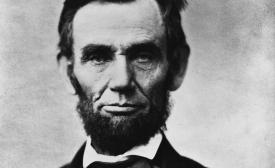united states
Cuba’s Los Van Van are a force in their home country. And the ensemble is prepping for its fifth tour in the United States. [...] In addition to the Los Van Van concert, a Cuban film series has been airing at the NHCC.
As US Secretary of State, John Kerry, reopens the American embassy in Havana, Will Grant reports on how skateboards are being used to establish bonds between the old enemies. NGO Cuba Skate is helping to strengthen that bond through skateboard diplomacy.
Thousands of people are expected to march in cities across the globe on Saturday in support of Iran's deal with world powers over its controversial nuclear program, activists said. The "global day of peace", as organizers describe it on Facebook, is aimed at showing support for the deal, which must be approved by US lawmakers before being implemented.
But in recent months, Mr. Morales and other Latin American leaders with frosty ties to Washington have begun to recognize the benefit of engagement, much of it transactional. [...] This shift is the result of discreet and pragmatic American diplomacy that in recent years has begun to alter the image of the United States as an overbearing, entitled neighbor.
As President, he knew he was not just fighting physical war with the rebellious Southern states; he was fighting a war of ideas in which he had to struggle to secure a moral high ground and maintain the confidence of his own people and world opinion. Most especially, his victory required Europeans to remain at least neutral in the conflict.
It’s not an abstract question. The Obama administration’s decision to restore diplomatic relations with Cuba is banked on the belief that the United States can do more to encourage change on the island through a soft-power strategy of “engagement.” And a big part of that, in Cuba, means figuring out how to change the profile of U.S. diplomacy — and throw a good party again.

Nicholas Cull on how the documents of U.S. diplomacy became public and fought to stay that way.
While at the Global Entrepreneurship Summit in Nairobi, Kenya, last month, I had the opportunity to witness a powerful exchange between U.S. Culinary Ambassador for Clean Cookstoves and famous Chef Jose Andres and a group of African chefs who were catering the event.







